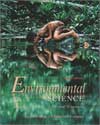 |
1 |  | 
Identify those points in the process of a bill becoming a law when concerned citizens could contribute input to influence the outcome. |
|  | |
 |
 |
2 |  | 
Define sustainable development, and describe why it is so important that societies attain it. |
|  | |
 |
 |
3 |  | 
Does the act of not buying some things at all qualify as green consumerism? Explain your reasoning. |
|  | |
 |
 |
4 |  | 
Explain how excessive consumption is linked to increased environmental impact and how individuals can easily reduce consumption. |
|  | |
 |
 |
5 |  | 
Some advertisers are using potentially misleading words to exploit the heightened interest of consumers in buying green. Write a sentence for each of the following words describing how it could be misused by an unscrupulous advertiser.
a. organic
b. natural
c. nontoxic |
|  | |
 |
 |
6 |  | 
Explain what is meant by this statement: "The relevant question is less, Can I afford it? and more, Can the earth afford it?" |
|  | |
 |
 |
7 |  | 
The wise use movement is an anti-environmental backlash that disagrees with much of what environmental organizations are pushing for. There are fundamental differences in the conceptual frameworks of these two sides. Outline the apparent conceptual frameworks of both sides. |
|  | |
 |
 |
8 |  | 
Think about the things that are absolutely the most important in your life, and then give a personal reaction to each of these statements.
a. The most important things in life aren't things.
b. High consumption is so intimately connected to quality of life that cutting consumption directly, regardless of the reason, means lowering quality of life. |
|  | |
 |
 |
9 |  | 
It has been said that environmental action in people progresses through a series of stages.
• Stage I No talk, no do.
• Stage II Talk, no do.
• Stage III Talk, do.
• Stage IV No talk, do.
Think about the people in your community. In which stage do you feel most of them are? What specific observations lead you to that conclusion? |
|  | |
 |
 |
10 |  | 
You pick up your local newspaper and discover that a land developer is proposing to put in a large new housing project on the south end of town. The city council must approve the plan before construction can begin. The project is controversial because the land contains one of the few remaining breeding grounds of Henslow's sparrow in the state. A friend of yours, a member of the local Audubon Society chapter, decides she wants to fight the proposal because of the recent sharp decline in this species across its range. She asks you for advice on organizing a campaign.
a. Outline your advice to her.
b. She is so impressed with your advice that she asks you to chair the publicity committee. You accept. Outline your proposal for involving the media in the public awareness effort.
c. One member of the group is particularly militant and wants to engage in an eco-sabotage operation against the company. Describe the serious downside risks to your cause involved with such tactics. |
|  | |
 |
 |
11 |  | 
The question on whether to change our behavior today in order to make life better, or at least no worse, for future humans is perhaps, fundamentally, a moral one. Do we have a moral obligation to future generations or not? Why or why not? |
|  | |
 |
 |
12 |  | 
Visit the Current Global Environmental Issues map on this Web site. Under Pollution, choose the piece Environmental issues in the World Trade Organization protests, Seattle.
a. From an environmental viewpoint, what are the main environmental concerns about the WTO?
b. What is the specific makeup of the WTO? Is such a group likely to be instinctively sensitive to environmental issues? |
|  | |
 |



 2003 McGraw-Hill Higher Education
2003 McGraw-Hill Higher Education